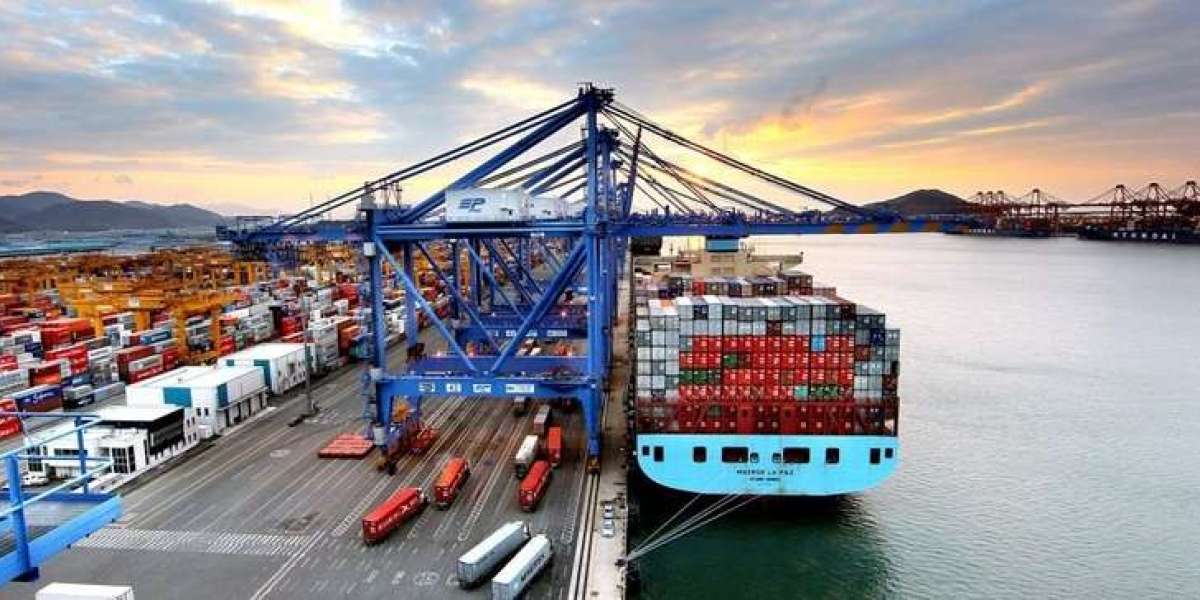In today’s hyper-connected and rapidly evolving business landscape, operational efficiency is no longer a luxury—it’s a necessity. Whether you’re managing a commercial delivery network, a government supply chain, or a defense infrastructure, Fleet Logistics Support plays a pivotal role in ensuring everything runs smoothly. But how can fleet logistics support improve operations in practical, measurable ways? The answer lies in a blend of smart planning, real-time data, and strategic execution.
What Is Fleet Logistics Support?
Fleet Logistics Support refers to the coordinated management of vehicles, transportation systems, personnel, and processes required to move goods, equipment, or resources from one place to another efficiently and effectively. It encompasses:
Vehicle maintenance and availability
Fuel and route management
Real-time tracking and analytics
Supply chain coordination
Driver and personnel logistics
In short, it's the backbone that supports the mobility and flexibility of any large-scale operation, especially those with complex distribution needs.
1. Enhancing Operational Visibility and Control
Fleet logistics support improves transparency in day-to-day operations. With the integration of GPS tracking, RFID scanning, and logistics management software, managers can monitor vehicle locations, delivery status, and driver performance in real time. This level of visibility leads to better:
Decision-making based on real-time data
Predictive maintenance, reducing vehicle downtime
Route optimization to save fuel and time
The result? Operations that are proactive, not reactive.
2. Improving Delivery Speed and Accuracy
Whether it's a military unit waiting on critical equipment or a customer expecting a next-day package, timely delivery matters. Fleet logistics support allows companies to:
Anticipate delays and reroute deliveries
Consolidate shipments more efficiently
Streamline loading and unloading procedures
By minimizing bottlenecks and improving coordination, logistics support ensures deliveries are faster and more reliable.
3. Reducing Operational Costs
One of the biggest concerns in fleet operations is the escalating cost of fuel, maintenance, and labor. A well-optimized fleet logistics system can dramatically reduce these expenses by:
Implementing eco-driving programs to reduce fuel usage
Using predictive analytics to avoid unnecessary repairs
Automating scheduling to reduce overtime costs
In the long term, these savings can be reinvested into innovation and growth strategies.
4. Strengthening Supply Chain Resilience
Supply chains are vulnerable to a range of disruptions—from geopolitical tensions to weather events. Fleet logistics support enhances resilience by offering:
Diversified route planning
Real-time disruption alerts
Mobile fleet assets that can adapt quickly to change
Organizations that leverage strong fleet logistics can pivot faster, reroute resources, and ensure continuity of service even during crises.
5. Boosting Customer Satisfaction
Fleet logistics has a direct impact on the end-user experience. Quick, accurate deliveries, reliable tracking updates, and fewer delays translate into better service. This is critical in sectors like e-commerce, healthcare, and defense, where reliability and trust are non-negotiable.
6. Leveraging Data for Continuous Improvement
Modern fleet logistics systems collect massive amounts of data. This data is gold for operational analysts looking to identify inefficiencies and opportunities. By analyzing metrics such as:
Fuel usage
Delivery times
Downtime
Route efficiency
Managers can make data-driven decisions that continually enhance performance.
7. Integrating Automation and AI
The future of fleet logistics support lies in automation. From self-driving delivery vans to AI-powered route planning, companies are beginning to leverage advanced tech to:
Cut down human error
Speed up dispatching
Predict delivery patterns
This tech-forward approach not only improves operations but also prepares organizations for the next era of logistics.
8. Ensuring Regulatory Compliance
Fleet operations are often subject to strict government regulations related to safety, emissions, and labor. Fleet logistics systems help ensure:
Electronic logging of driver hours
Automated emissions tracking
On-time compliance reporting
This reduces the risk of fines and builds trust with stakeholders.
9. Enhancing Team Collaboration
Effective logistics support also improves internal communication and coordination across departments—transportation, warehousing, procurement, and management. Centralized dashboards, shared data access, and real-time notifications ensure everyone is on the same page.
10. Adapting to Market Demands
Markets change. Demand fluctuates. New regulations emerge. A responsive and flexible fleet logistics system enables companies to adapt faster than their competitors. Whether scaling operations or shifting focus, logistics support acts as the operational lever that adjusts to new realities.
Conclusion: Fleet Logistics Support Is the Competitive Edge
So, how can fleet logistics support improve operations? In more ways than most realize. From cost savings and delivery accuracy to data intelligence and resilience, it's the engine that drives modern organizations toward operational excellence. In 2025 and beyond, those who invest in smarter fleet logistics won’t just survive—they’ll lead.







